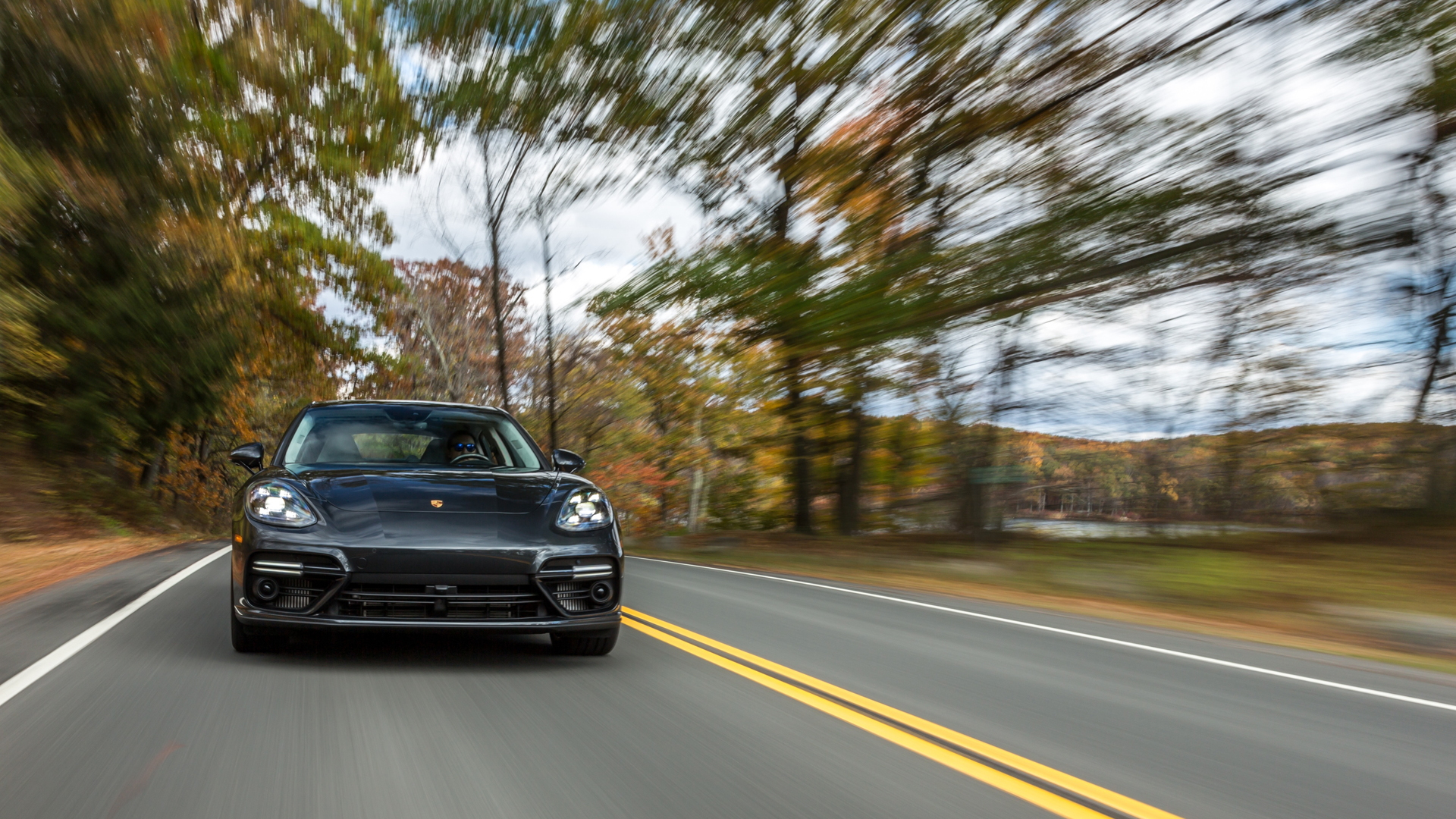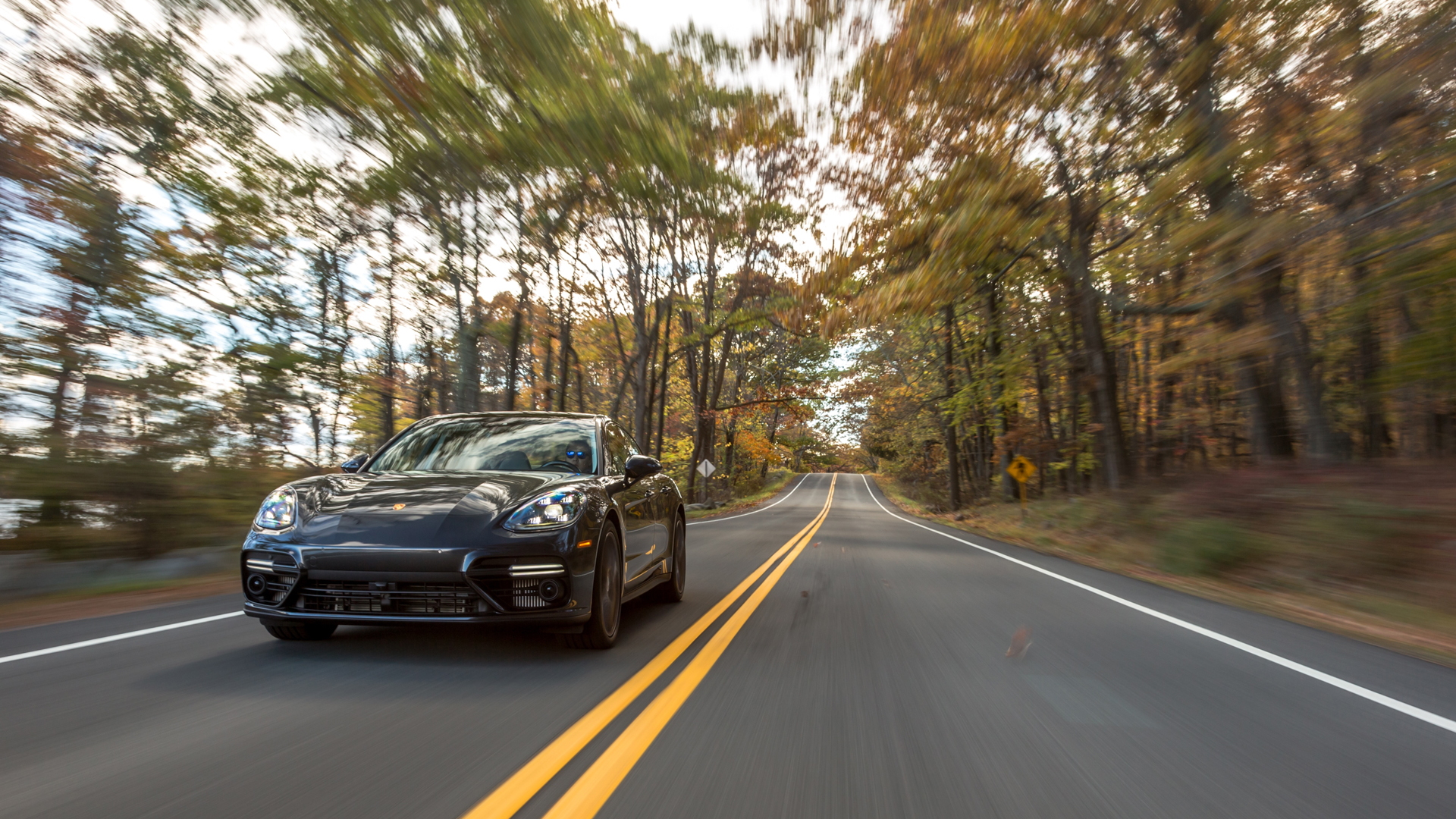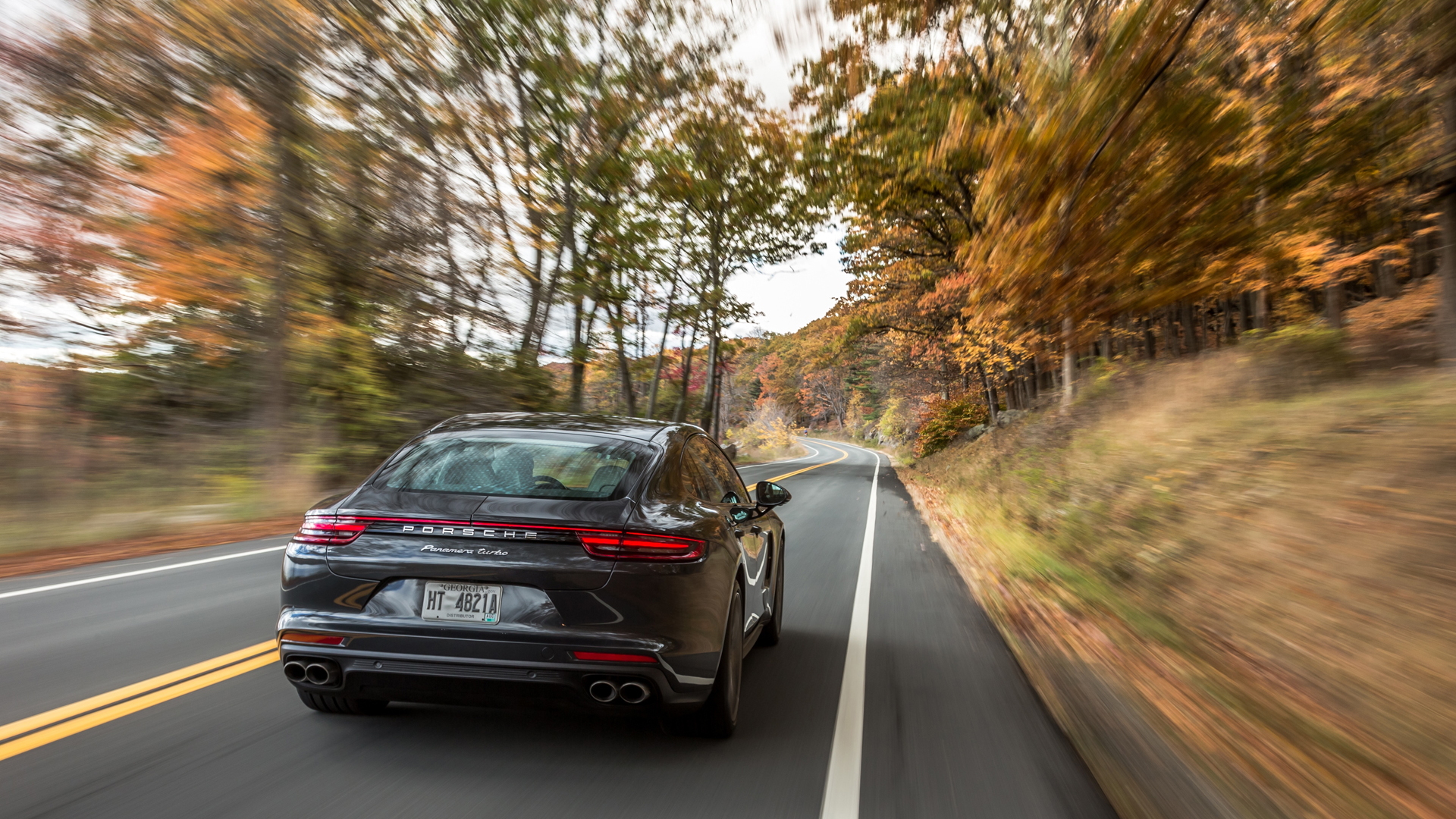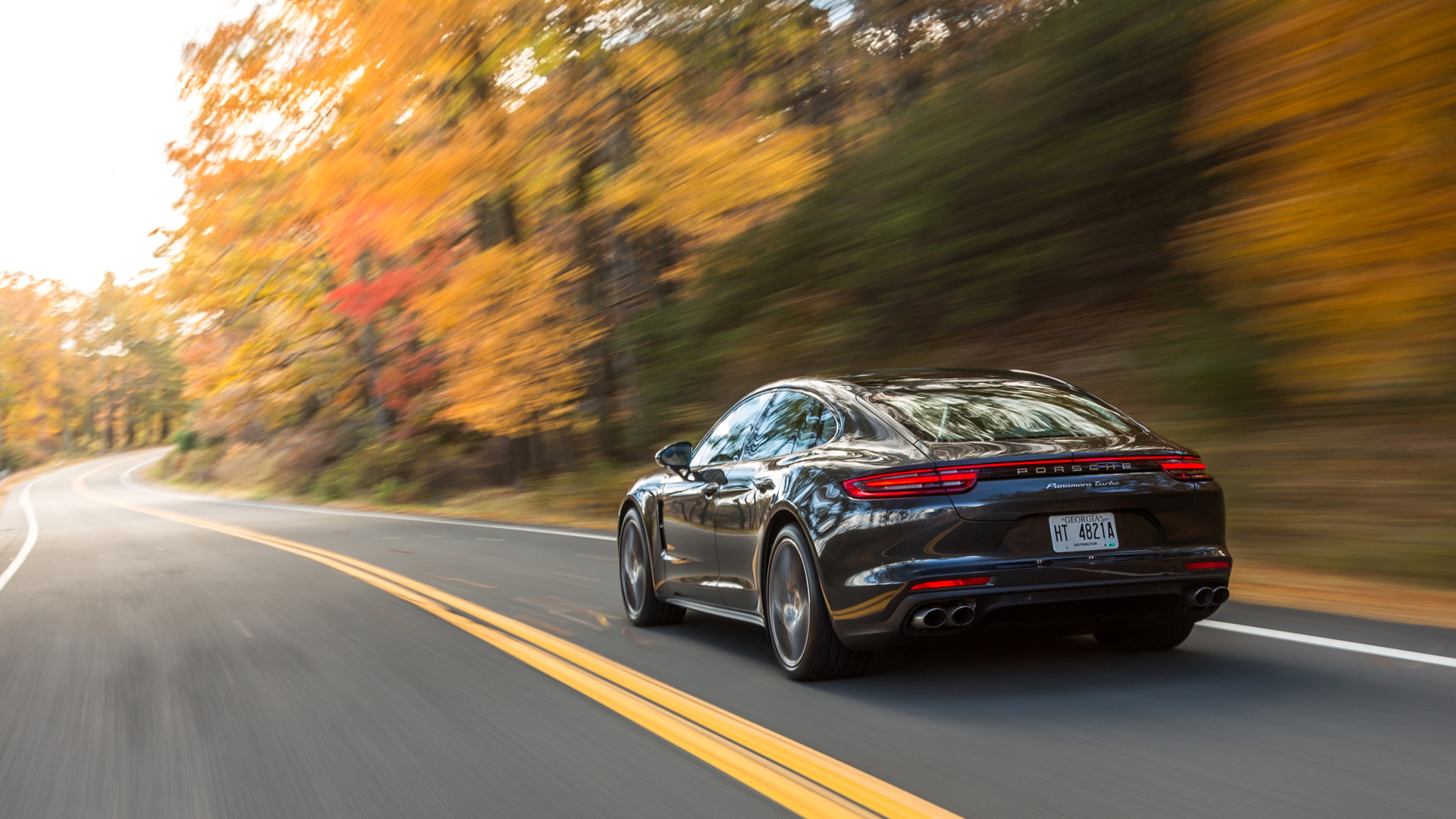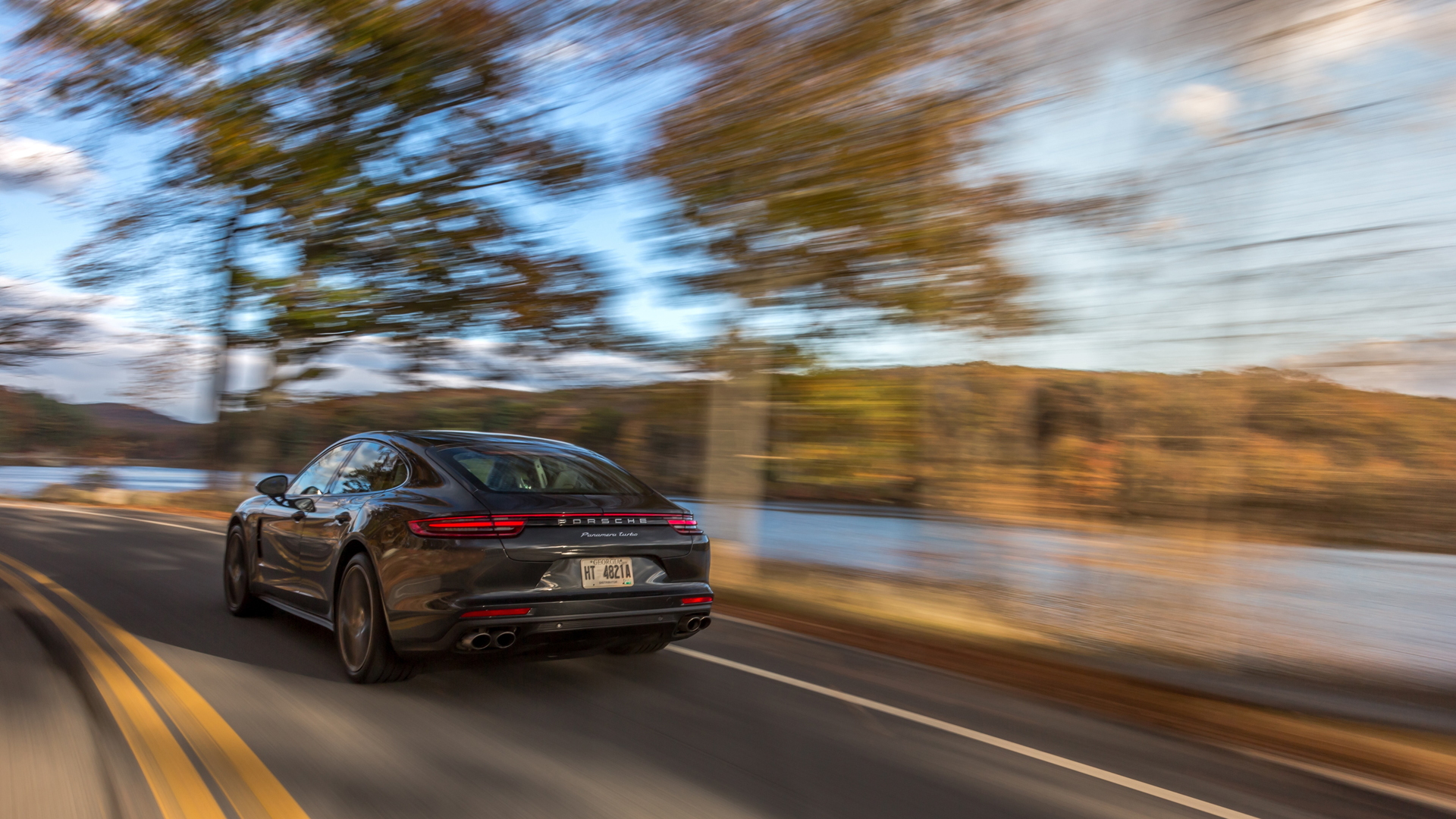To Porsche enthusiasts, the Panamera may be heresy. The engine is up front instead of mounted in the middle or the rear. The Panamera debuted in 2010 and immediately became the brand's second-best selling car. Heresy be damned.
Now in its second generation, the 2018 Panamera atones for some of the sins of its father.
The hump at the back of the roof that made the original so bulbous is gone, leaving this car that limbos lower with cleaner lines. The roof sits almost an inch lower and the fenders spread more than an inch wider. The wheelbase is 1.2 inches longer, too, providing even more utility for a car that approaches SUV levels of practicality.
The key is the voluminous hatchback body style. It has 17.4 cubic feet of cargo space, and you can fold down the rear seats to expand that to 46 cubic feet. Folks, that's compact SUV territory. The Executive body style adds almost 6 inches to the wheelbase, and the Sport Turismo is a wagon, which you should all opt for, obviously; both provide that much more comfort and utility.
The rear seat still has plenty of space, and driver and passenger are treated to comfortable seats with multiple adjustments. Touch controls are new; buttons are gone. A touch-panel surface right out of the USS Enterprise complements a 12.3-inch touchscreen. It’s an advanced system, but complicated. It's also a leap forward for Porsche.
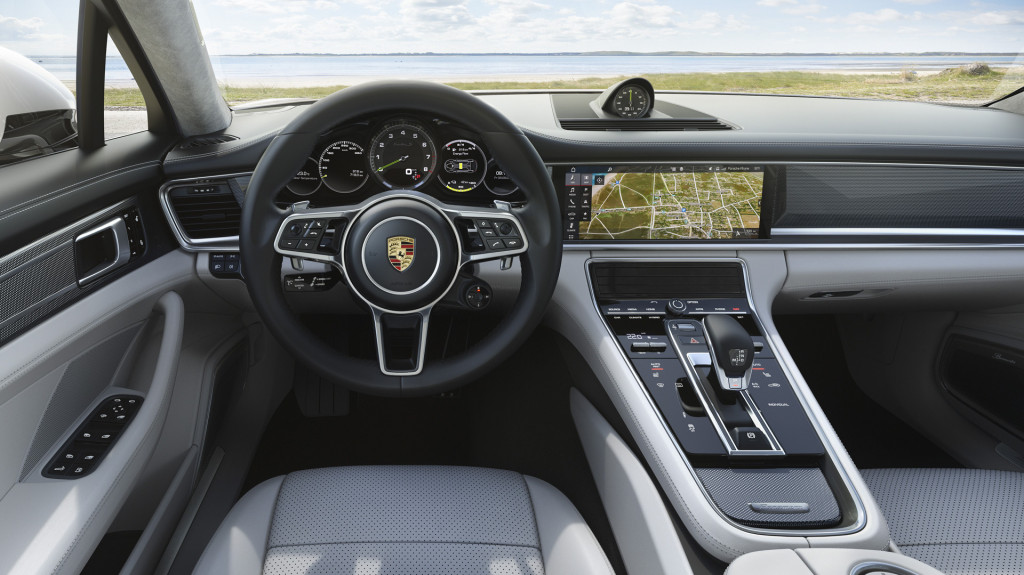
2018 Porsche Panamera Turbo S E-Hybrid Sport Turismo
Porsche offers a bevy of Panamera models with a range of powertrains, including two hybrids. Engine performance is improved across the board. Horsepower starts at 330, jumps up to 440 in the S models, gets boosted to 550 in the Turbo, and tops out at 680 in the Turbo S E-Hybrid.
All models are quick, with 0-60 mph times ranging from mid-5s to low 3s. Our 4S tester hit the sweet spot, with its 4-second 0-60 time, 179-mph top speed, and all-wheel drive.
Technology helps this large car defy physics and feel small. Rear-wheel steering virtually shortens the wheelbase, torque vectoring helps the car pivot through turns, while active roll bars keep it flat in corners. All models have adjustable dampers, and the available air suspension adds comfort or sportiness to the Panamera. On the street or track, it offers confident, effortless performance. It can seem slow to steer because it’s long, but it's damped perfectly and those tech features help it pivot through esses.
SUVs are fashionable now, but performance like the Panamera's is always in style.
Priced from $86,000 the Panamera is a competitor for the likes of the BMW 7-Series and Mercedes-Benz S-Class on comfort and mission. Dynamically? The Panamera puts those cars—and some sports cars—to shame.
It might be heresy that Porsche's best-selling car isn't the 911, but the Panamera is a fantastic car that earns the Porsche badge.
